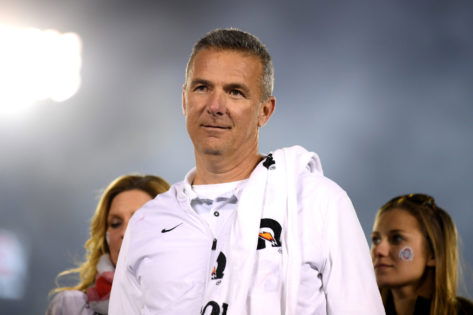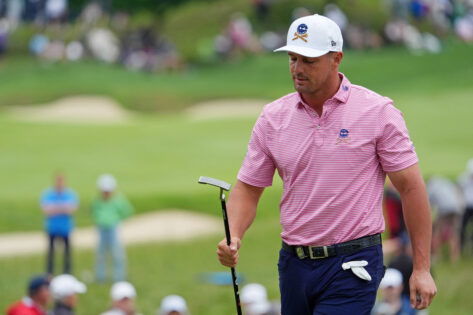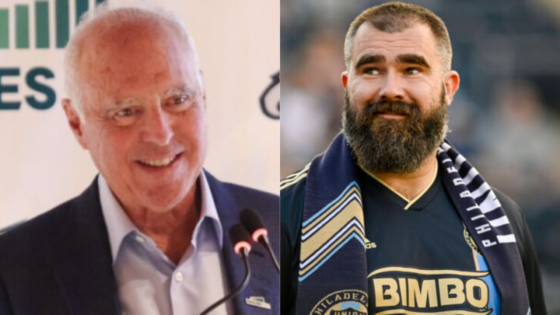Just days after the College Sports Commission took NIL into its hands, the college circuit seems to have come into a not-so-cozy relationship with the watchdog, earning the distaste of CFB royalty. But how did it come to be? Let’s peel back the layers and zoom in on the main crux. Before the CSC, the NCAA acted as the watchdog for collegiate athletics for over a century, but now a new regulatory body has come to the forefront, with its primary focus on the cash factor.
In 2021, the NCAA changed the college football circuit, legalizing NIL, prompting an ‘Aha’ moment for student-athletes, as they could finally reap some financial benefits from their hard toil on the turf. Brands were quick to take notes and eagerly jumped onto that bandwagon, culminating in a million-dollar marketing venture, reaching a whopping $1.2B in 2023-24, according to Reach Capital. Despite the cash factor it offered, the new changes in rules created a slew of problems, and roster inconsistencies were rampant with allegations of ‘Pay-for-play.’
But the future of NIL was yet to change. Enter 2025. Judge Claudia Wilken gave the green light to the NCAA vs. House settlement, permitting college programs to directly pay their student-athletes, unlike previously, when athletes partnered with third parties. A bonus financial chunk worth $2.8 billion for alumni, much to the former player’s delight, is also in store. And in the wake of this news settlement, another regulatory body took shape. And we know it as the College Sports Commission. One of the arguments in favor of this commission stems from the POV of regulating the NIL market, which was once described as the “Wild West.” To tackle this issue, the newly established body set up a ‘NIL Go’ system.
But celebrated coach Urban Meyer is not sold on this commission and put forward his blunt take on the Triple Podcast on Wednesday. “This thing that’s intriguing to me is that this Czar, the new college football commission, and I’ve spoken about it, my skepticism about it now that I’m aware of what it is,” Meyer said. “So, in your mind, you’ve been led to believe that this will be different.”
The House V. NCAA settlement came into effect on July 1, and within two weeks of its enforcement, it has come into conflict with the Division I programs. And the crux of the issue this time is over the definition of “valid business purpose.” The NIL watchdog sent letters to the athletic directors mentioning that it will reject NIL deals in which players receive money from collectives that were created just to pay the athlete and are not meant for greater public service.
Urban Meyer continued to share his candid take. “And what I mean by different is the issue with the NCAA, there’s lack of subpoena power, and there is no—everything gets litigated, and everybody loses. So, what does a lack of subpoena power mean? People lie. You know, it takes years; you’re seeing it right now with the Wolverines and other cases. I mean, what in the world? And so there’s this feeling out there that I think is incorrect that things are going to be much different.”
Although under the new regulation, programs are required to report NIL deals to the watchdog, Michigan schools might get relief from that, provided they sign up to the in-state rulebook. Michigan lawmakers have been pushing for HB 4643, which has a different set of NIL rules, and if signed by the Wolverines and the Spartans, will exempt them from the oversight of the regulatory bodies. Moreover, Urban Meyer is also referring to the delay in the findings of the NCAA’s investigation into Michigan’s sign-stealing scandal.
“First of all, the new czar is only in charge of the NIL and the tampering, from what I understand. So the old issues remain old issues with little to no enforcement,” Meyer continued. “But the new college football commission does not have subpoena power. They still have the issues of litigation.”
To understand it better, let’s jog down memory lane and zoom in to 2021, when the NCAA gave the green light to NIL, provided it was legal in the home state as well. But the latest scenario is different. The Power Four conferences have been putting forward an oath, requiring their member programs to abide by the new college sports commission rulebook, restricting them from circling back to the state laws. And if Michigan programs fail to sign these documents, they might get kicked out of the conferences.
But Meyers is not the only one at a crossroads with the new governing body. Another celebrated coach is of the same opinion, who did not hold back when expressing his distaste.
Deion Sanders puts forth views on NIL
The news developments in the NIL factor have been purely positive news for the student-athletics community, a financial freedom once denied. But celebrated coach Deion Sanders has a polarizing take, calling for a salary cap on the players.
“I wish there was a cap,” Sanders said during the Big 12 media days this week. “Like, the top-of-the-line player makes this, and if you’re not that type of guy, you know you’re not going to make that. That’s what the NFL does.” He didn’t stop over there; he continued to paint a picture of the present NIL scenario and candidly expressed his distaste.
“I wish it was truly equality,” Sanders said. “Now they go back to doing stuff under the table. They go back to the agents. Now you’ve got parents trying to be agents, you’ve got the homeboys trying to be agents, you’ve got the friends trying to be agents. You got a lot of bull junk going on. And quite frankly, we’re sick of it. I’ll say it for everybody: We’re sick of it.”
With just a few weeks away from the 2025 season, the college football circuit is grappling with another set of issues. NIL has been one of the major factors in the recruiting landscape as well as in the transfer portal. Let’s see how the 2025 season unwinds in the coming month.
The post Urban Meyer Isn’t Sold on College Sports Commission for Obvious Reasons appeared first on EssentiallySports.



